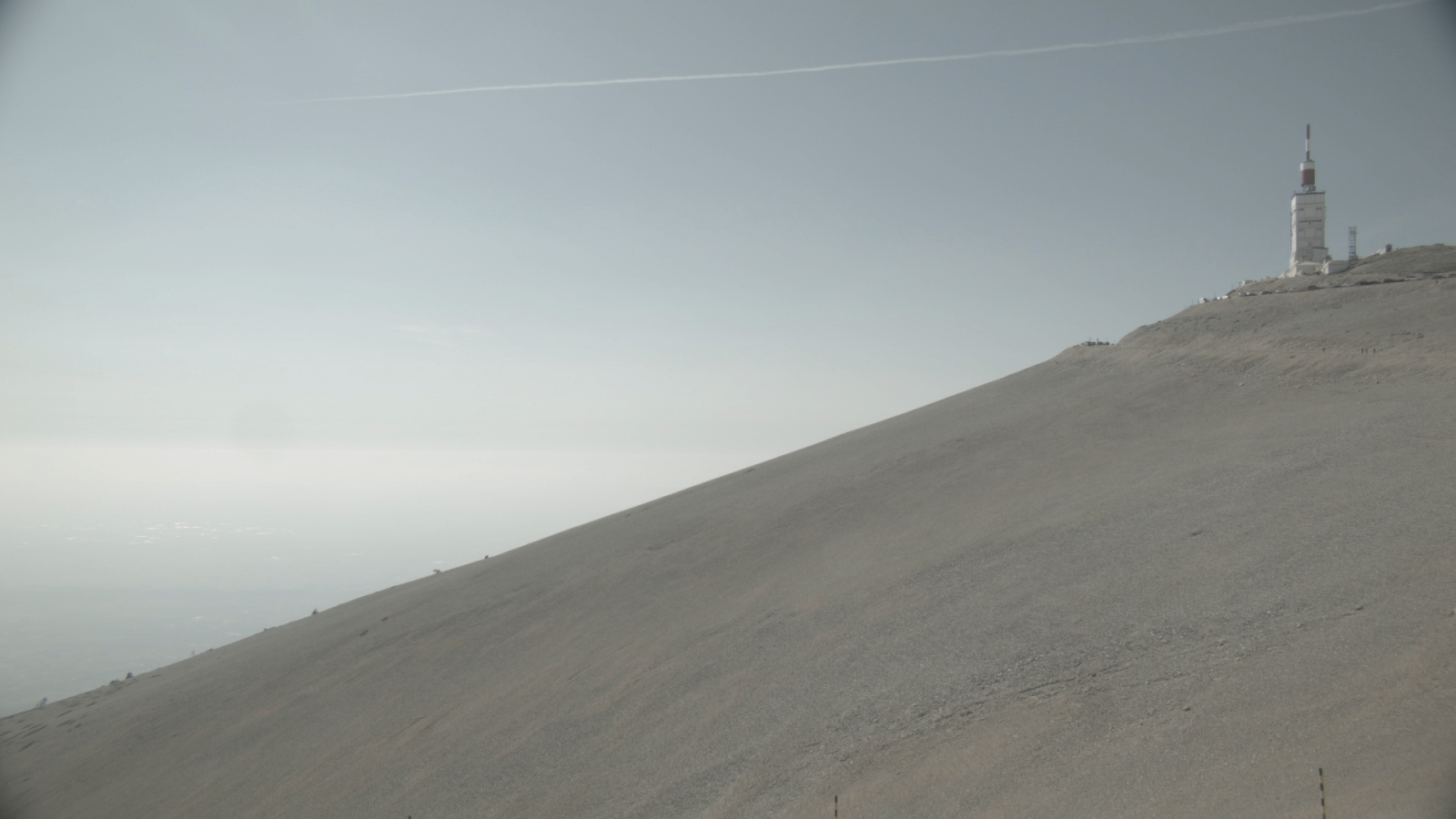Author Roland Barthes
made a claim that the French mountain of Ventoux is a god of evil, to
which sacrifices must be made. In Ventoux the one act play by
Nottingham based 2Magpies Theatre they certainly make some exciting
and sweaty sacrifices in the name of art. Indeed, they take pedalling
theatre to a whole new meaning of brilliance and return triumphant
from the mountain at the end of the play. The performance is a true
tour de force.
Ventoux is a
devised live performance by 2Magpies Theatre who are being mentored
by New Perspectives, Curve and IdeasTap. The piece is part of the
Inside Out Festival of new writing at Curve Leicester. The
performance examines the rivalry of Tour De France gods Lance
Armstrong (USA) and 1998 Tour champion Marco 'Il Parati' Pantini, the
first, in total denial but facing major disgrace for using
performance enhancing drugs in the sport of cycling and the second,
now revered, eventually losing his life.
Ventoux is
directed by Matt Wilks with actors Tom Barnes as Pantani and Andy
Routledge as Armstrong. As the audience members arrive into the small
space of studio two we witness the two characters dressed in Lycra
limbering up and behaving in a repetitious and almost ritualistic
manner. Two racing bikes are on stage with the back wheels off the
ground supported by stands. At each end of the space are two big
screens one facing the other. There is no talking in this prelude
except Barnes as Pantani raising a wine bottle in the air and
periodically saying “Simpson” or “Tom”. This turns out to be
in honour of sports cyclist Tom Simpson who lost his life during the
1967 Tour.
When the play begins both the actors playing the American and Italian speak in their normal English voices. For the first few seconds this seems a little surprising but actually the decision to speak this way gives a better focus on the storytellers' words and loses nothing in the theatrical impact.
The play makes inventive use of some clever staging, projection, heart racing live action and film footage of the increasingly steep road up the capricious mountain. Initially we hear from each actor about their characters' childhoods and their eventual desire to become winners in the world of professional cycling. We also learn of their individuals struggles to achieve their sporting glory. The story is about the cost of great human passions as well as pedals and pumps.
During the whole performance there are constant changes in the dynamic with the bikes being ridden and manually relocated around the floor space. At times the visual aspects become very symbolic with Pantani frantically attaching small brown envelopes containing drug reports on the spokes of Armstrong's bike. At times the action becomes punishingly surreal as both performers begin to cycle barefoot towards the end of the piece.
 |
| Last portion of Ventoux |
The major story that we hear of is that, in the year 2000 Tour De France, leaders Armstrong and Pantani were well in front of the others on the Ventoux during the mountain stage. After three kilometres with Armstrong leading Pantani attacked late to win the stage. Armstrong didn't answer his attack, content that in thinking that he'd distanced his closest rivals and made winning his second Tour a little more certain. This and the following information is conveyed to the audience through an intriguing mix of text and visuals making the whole performance very accessible and intriguing even if you have little interest in the world of cycling. It is the human story that counts.
Thousand's of onlookers had expected Armstrong to impose himself given the historical significance of the mountain. The fact that Armstrong didn't sprint deeply offended the hot headed Italian Pantani who thought that by Armstrong giving him the stage he had failed to show proper respect to himself as a former tour winner. He never forgave Armstrong and went out of his way to make things difficult for Armstrong and his team mates over the following days at the stage towards Courcheval. This turned out to be Pantani's final win as a professional. Pantani's story is brought vividly to life by actor Tom Barnes through abstraction and direct conversations with the audience. Historically, on the 14th February 2004 Pantani died alone in a hotel as a result of a cerebral oedema and heart failure. An inquest revealed acute cocaine poisoning. He had five times the recommended levels of cocaine in his body.
Through Barnes and Routledge's fantastic story telling skills and the particular style of 2Magpies Theatre we are constantly engaged in this story of cycling rivalry. There is much stamina involved in performing such a masculine adrenalin soaked piece as Ventoux and the acting fully demonstrates the passions of the sports stars and their very human qualities and failures. Original audio commentary from the actual gruelling race up the mountain road of Ventoux is combined with the live cycling and screened visuals make this an unusual but none-the-less vibrant piece of new theatre writing and performance.
No comments:
Post a Comment